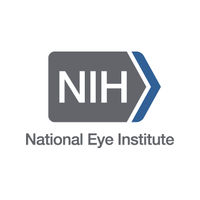National Eye Institute

- Country
- 🇺🇸United States
- Ownership
- Private, Subsidiary
- Established
- 1968-01-01
- Employees
- 101
- Market Cap
- -
- Website
- http://www.nei.nih.gov
Repurposed Blood Pressure Drug Shows Promise for Treating Inherited Retinal Diseases with Sex-Specific Benefits
NIH researchers have discovered that reserpine, a decades-old blood pressure medication, can protect photoreceptor cells from degeneration in inherited retinal dystrophies regardless of the specific genetic mutation involved.
NIH Researchers Develop Eye Drops That Could Slow Progression of Retinitis Pigmentosa
Researchers at NIH have developed eye drops containing small peptides derived from pigment epithelium-derived factor (PEDF) that successfully slowed vision loss in animal models of retinitis pigmentosa.
ARPA-H Funds Multi-Institutional Consortium to Cure Blindness Through Eye Transplantation
The University of Colorado Anschutz Medical Campus will receive up to $46 million from ARPA-H to advance vision-restoring human whole eye transplantation.
UND Research Team to Evaluate VR Therapy for Pediatric Amblyopia in NIH-Funded Clinical Trials
• The University of North Dakota (UND) research team has been approved to conduct clinical trials for the Pediatric Eye Disease Group (PEDIG), focusing on innovative treatments for childhood eye conditions. • The trials will assess the effectiveness of virtual reality (VR) headsets as a novel approach to treating amblyopia, also known as lazy eye, in children aged 4 to 12. • These PEDIG studies, funded by the National Eye Institute (NEI) and the National Institutes of Health (NIH), aim to compare VR therapy with traditional eye patching for amblyopia treatment. • The research could potentially change the standard of care for amblyopia, offering a more engaging and effective alternative to conventional methods.
Low-Dose Antiviral Therapy Reduces Risk of Eye Disease from Shingles
Long-term, low-dose valacyclovir reduces the risk of new or worsening eye disease by 26% in patients with herpes zoster ophthalmicus (HZO).
UAMS Awarded $2.2 Million Grant to Investigate Efferocytosis in Retinopathy
The University of Arkansas for Medical Sciences (UAMS) has received a $2.2 million grant from the National Eye Institute (NEI).
AI-Powered Model Aims to Decode Genetic Variants in Stargardt Disease
Researchers are developing an AI model to classify genetic variants of the ABCA4 gene, crucial for understanding Stargardt disease.
